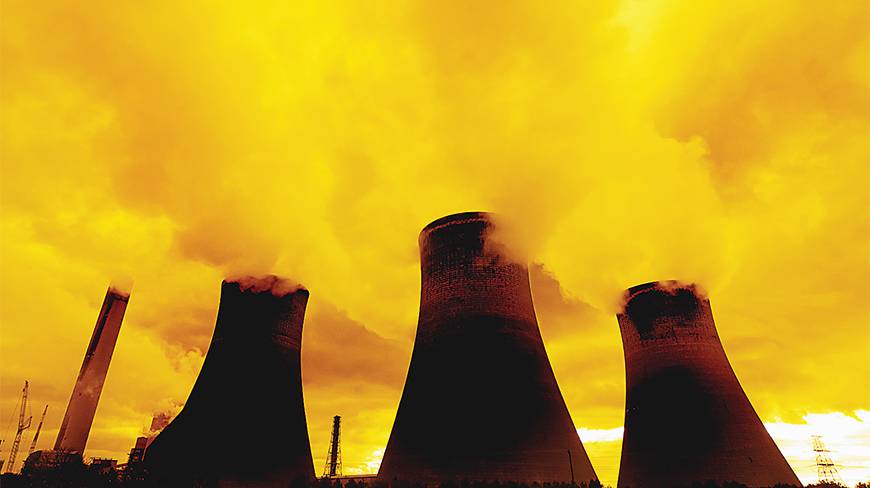Bangladesh signed a $12.65 billion deal on December 25 with a Russian state-run company for the construction of a 2400MW nuclear power plant at Rooppur. Out of the total amount, $10bn was fixed as the base price, $1bn for soil stabilisation, and the remaining $1.65bn for price escalation.
The additional cost is associated with the construction of four to five radiation stations outside the power plant area, hiring extra manpower for the construction of a jetty and road, and fuel cost for one additional year. Russia will provide these for two years after commissioning.
The prime minister stressed the importance of timely completion and the safety of the plant soon after the MoU for the deal had been signed. Safety is, of course, the most important issue for a nuclear power plant. There are a few other issues, perhaps equally important, which need to be addressed while building the first nuclear power plant.
A safe plant will do no good to a country if it fails to deliver the desired power to the grid at a competitive cost. So, a nuclear plant must not only be safe, but also reliable and economic to operate.
To meet these requirements, the construction of the first nuclear power plant requires elaborate and meticulous planning before signing the contract for construction of the plant.
If a contract is signed without properly going through all the phases of pre-contract activities, the implementation of the contract will require multiple changes in the design of the plant and terms of the contract will inflate the base price beyond imagination.
A feasibility report is always prepared by an independent organisation for an impartial assessment of both the technical and economic aspects of a project.
It loses much of its credibility when it is prepared by a sister organisation of the main contractor having commercial stakes in the project.
Under such circumstances, it was necessary to review the findings of the feasibility report by a truly independent consultant, preferably from India, having substantial experience in building VVER reactors.
I was directly involved with the Rooppur Nuclear Power Project during negotiations with V/O Technopromexport of the former Soviet Union and also with Westinghouse of Europe during late 1960s and early 1970s.
Even though we had a fairly competent team of experts with experience of construction of the Karachi Nuclear Power plant, we hired a consortium of independent consultants from Switzerland and the US to assist us in the evaluation of the project proposal, negotiations with the Belgians, and drafting of a complete contract for a 200MW nuclear power plant at Rooppur. The whole process took us about a year.
I wonder, when we received the project proposal for a 2400MW nuclear plant from the Russians, who evaluated the proposal, what qualifications and experiences they possessed, and how long they took to evaluate, negotiate, and prepare a draft contract on which the price of $12.65bn was fixed?
Was there anyone in the Bangladesh team whose qualification and experience matched those of the Russian team with whom they negotiated?
Did we take the assistance of any independent consultant in our negotiations with the Russians and spend about a year for a thorough scrutiny of the project proposal? On what basis was the price determined? Did we receive any break-up of the total cost and have the responsibilities of the owner and the main contractor be clearly defined, leaving no grey areas?
Are we getting a complete power plant with the step-up transformer, transmission line, and a substation to link the plant with the Bangladesh power grid?
In case the job of evaluation of the project proposal and the negotiations with the supplier were completed in a matter of days or weeks, the members of our team most probably possessed super-human qualities or they simply signed the contract on dotted lines without proper evaluation.
If the entire construction work of the nuclear plant is carried out by the Russians, will there be any scope for technology transfer?
Could we not do most of the civil work, erection and commissioning work, using local contractors and materials, as far as possible, and thus substantially reduce the capital cost, increase local participation and provide jobs to local workers? It was reported that a large number of Russians — around 80 — was employed during the feasibility study when the main job was collection of data at the site.
Could we not employ local engineers and technicians to do this job under the supervision of few Russian experts? If 80 Russians are needed to prepare a feasibility study, how many Russians will come during the construction phase? Will it not exceed 1,000?
If I recall correctly, the maximum number of Canadians at the Karachi Nuclear Power Plant during the peak construction period did not exceed 30.
India followed the same policy while building their nuclear power plants. The local participation was 20% in the first nuclear plant, 40% in the second, and they progressively increased it to a 100%.
They are now capable of building their own version of nuclear power plants (CANDU) on their own. If we do not follow this policy from the very beginning, we shall remain dependent on foreign technology for building nuclear power plants for all times to come.
What warranties, guaranties, and penalties are incorporated in the contract? Does the plant supplier warrant full power operation for at least one month, uninterrupted power supply for at least three months, net heat rate, the life of the plant (50 or 60 years?), a plant availability of not less than 80%, and the completion date? What penalties are there if the stated warranties are not fulfilled?
Source: Dhaka Tribne










